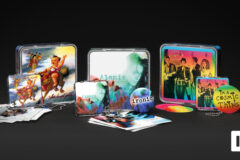Now Hear This is a monthly A&R column that provides you with exciting new sounds we discovered through the innovative new music platform Groover.
Each month, you can expect a varied bouillabaisse of songs from a vast spectrum of artists from all over the globe, regardless of genre or geography.
Gaelynn Lea
Sounds like: Haunting and experimental classical reinterpretation of Macbeth by one of America’s foremost talents on the violin.
Describe your approach to music and how you would explain your sound to others.
As far as the violin goes, I like to create layered soundscapes with a looping pedal. Over the years, I have recorded lots of atmospheric, improvisational pieces as well as experimental takes on traditional fiddle tunes. When I am writing original songs with lyrics, the core is folk music. I like to write lyrics that are simple to understand but not completely ordinary – I hope to express some of the universal themes of humanity without getting too wordy. My sound is a bit melancholy with an underpinning of hope; I am always exploring the idea that in life we must simultaneously embrace both beauty and pain, joy and sorrow, death and life. There’s always a mix.
My most recent album, Music from Macbeth, was created after I composed the music for Macbeth on Broadway in 2022. This is by far the most experimental album I’ve made to date. It’s built around the characters’ themes and follows the journey of Macbeth as he meets his demise, so it’s pretty dark and twisted by the end. It was really fun to make because although there were lots of violin layers, as usual, I added a lot more effects to the strings than I usually do. It was really fun to make.
How did you come up with the name of your act?
The name of my act is simply my name – Gaelynn Lea! So the name wasn’t too difficult. 😉
What are some artists and albums that have informed your creative direction?
I grew up devouring Simon and Garfunkel because I loved their lyrics and their harmonies. When I got a little older, I became obsessed with Wilco, The Decemberists and Neutral Milk Hotel, again mostly for their lyrics and creative instrumentation. I listen to (and play!) a lot of traditional Irish and Scottish music, so I know that sound has snuck its way into my music, too. These traditional tunes are truly timeless. That’s something I would love to accomplish – making music that feels somehow timeless. Alan Sparhawk (of the band Low) was extremely important to my creative development because in 2011 he first introduced me to the looping pedal when we formed the duo The Murder of Crows. He’s on an endless exploration of sound — always pushing the boundaries. He encouraged me to get a lot bolder in my playing.
What’s the most exciting thing happening in music right now?
I think that as AI and commodification of music gets further along, indie artists especially are going to feel the internal tug to create something that is fully human, fully them, even if it doesn’t fit the algorithm… Or at least that’s my hope!
Where do you see the music world heading in the next five years?
That’s a million dollar question! I hope musicians can find a way to sustain themselves that doesn’t fully revolve around the internet. Obviously the internet – things like YouTube and TikTok and social media and streaming – are massively important, but I just got back from my first full tour since the pandemic (I just played 10 shows in the UK to promote Music from Macbeth) and it was one of the most life-affirming experiences I’ve had in quite some time. Playing music for/with people in person is a sacred energy exchange and (without minimizing the very cool things that the internet can provide) I think it would be a shame to let it fall to the wayside. I have heard from other indie artists like me that it’s been harder to sell tickets to live shows since the pandemic and that makes me nervous. You can’t sustain a music career if you continually lose money on the road. I hope that organizations and music lovers do what they can to support live music performances in the next five (to 105) years!
How is music helping you during these uncertain times?
It may sound cheesy, but playing music always uplifts my spirit. After the UK tour, I stuck around in Scotland for a few extra days and I sat in at a traditional Celtic jam session at a pub called Sandy Bell’s in Edinburgh, and just making music with other fiddlers for fun was a joyful affair. And when things get really hard, writing songs has always been a way to process emotions eventually. So I think music is like medicine in that regard. Or anything creative! I would urge everyone to find some sort of creative outlet during this time so they can transmute their energy into something life affirming that hopefully helps other people, or at least helps them to be more present, fully alive and nourished if / when the going gets tough! Most of my songs have come out of some sort of struggle, so even though it is painful to deal with difficult emotions, often that is where art comes from… the aftermath. So I try to trust in the fact that everything can be used for something good in the end.
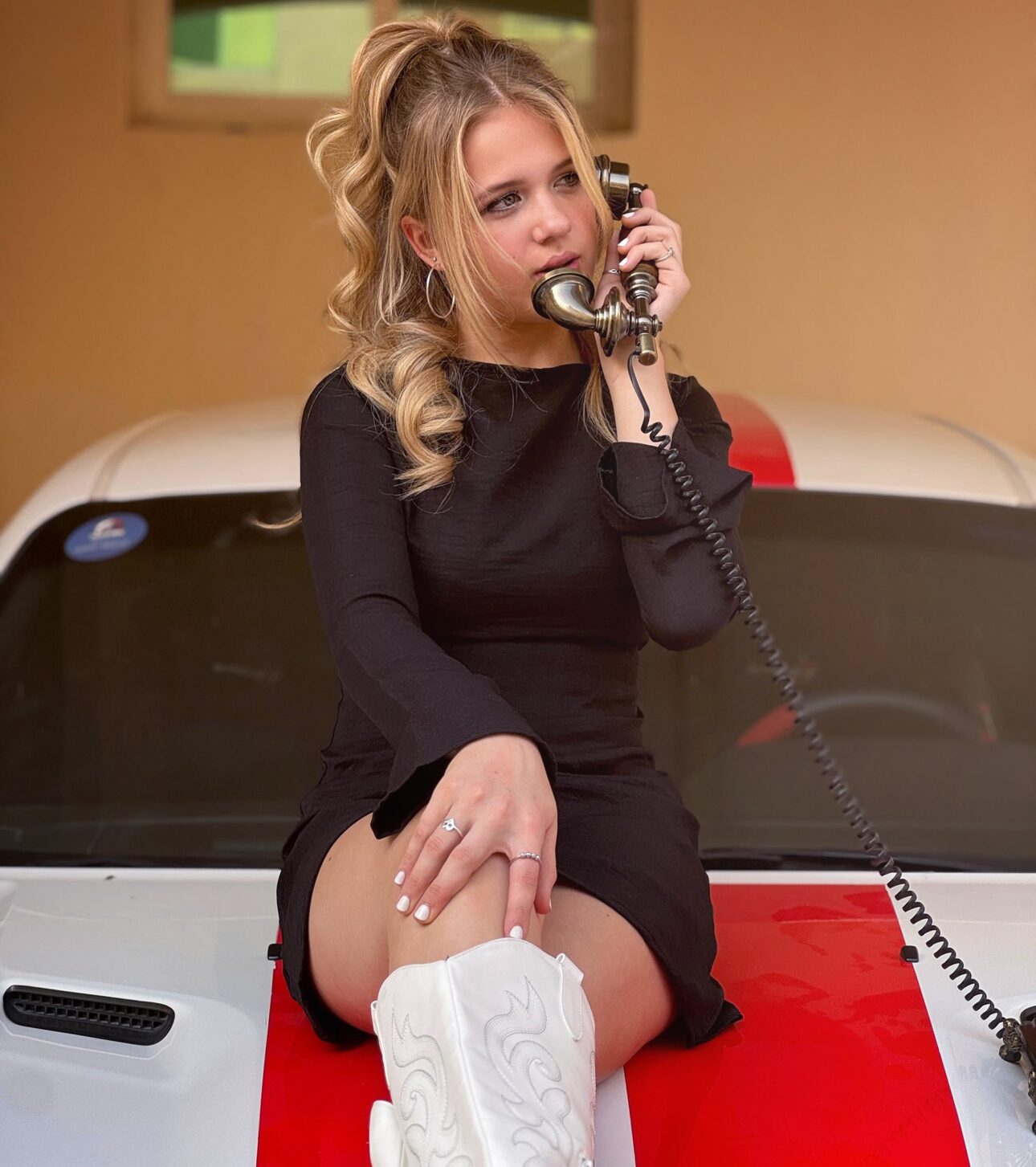
Niamh Beatrix
Sounds like: Thoughtful bedroom pop from a rising South Africa-born, Ireland-based songwriter who at 14, exhibits talent far beyond her youth.
Describe your approach to music and how you would explain your sound to others.
For me music is about finding a way to say what is real — even if it’s hard. When I start a song I feel my way around with words and melodies until I can make sense of what it is I’m trying to say or what I am feeling. It’s not quick or perfect. I get stuck, I overthink, get distracted or mess up. But I don’t care about writing the perfect song — I’m only 14, so I guess I don’t need to pretend I’ve got it all figured out. I just want to write something that’s honest. If I had to describe my sound, I’d say it’s super stripped-back, kinda raw, and 100% real.
How did you come up with the name of your act?
I love my Irish name — Niamh. I am South-African-born and when I grew up there I was the only Niamh (said Neave) around. Since moving to Ireland though my name is not unique at all so I added the Beatrix, which is my maternal granmother’s second name – she is from French-descent. But around here I’m just known as ’Niamhy’.
What are some artists and albums that have informed your creative direction?
Oooo there’s so many – not all typical teenage idols though: Judy Garland, Eva Cassidy, Amanda Strydom (South African), Adele, Lady Gaga, Amy Winehouse, Billie Eilish, Hozier, Benson Boone and Olivia Rodrigo (going to her concert here in Dublin next week!)
What’s the most exciting thing happening in music right now?
I don’t know if it’s the most exciting thing happening in music, but I’m really into mixing genres and making something totally new. Last year I did this South African Christmas song with the South African Youth Choir, but I added Irish dance music vibes to it — it was honestly so fun. I love doing random combos like that. They actually did something kinda similar in the Riverdance show recently, where they mixed different music and dance styles into the classic Irish routines.
Where do you see the music world heading in the next five years?
I think AI is a cool tool, for sure, but kinda like with deepfake videos — at first people couldn’t tell what was real, and now they totally can, and honestly, they get bored of it pretty fast. I feel like the same thing’s gonna happen with music. People might go for the stuff that’s super fast and perfect at first, but eventually they’ll start craving something real again. Like, I don’t know… we’ve got souls, right? And I feel like you can tell when a piece of art doesn’t have one — or at least, I really hope we still can.
How is music helping you during these uncertain times?
Music is my way of making sense of the world around me. It’s like journaling is to some. If, by making music, I can help a couple of people to make sense of their lives, find some hope or just forget about the uncertainty for a little while — especially young people like me — I sleep well (well that’s a lie because I suffer from insomnia – but I am happy!)
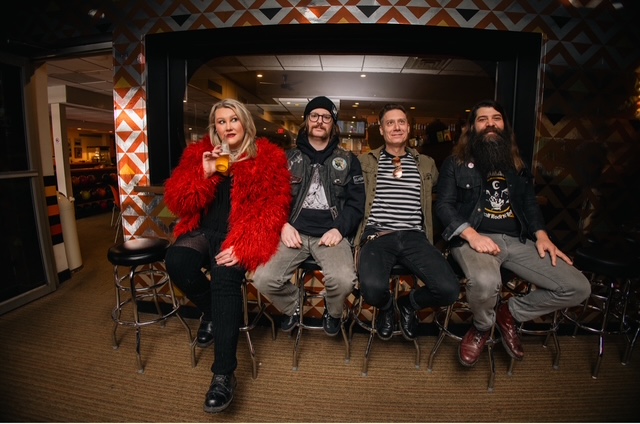
The Lowcocks
Sounds like: Sociopolitical misfit rock with the punch to transform Dolly Parton’s “9 to 5” into the working class punk anthem it always was beneath the country pop sheen.
Describe your approach to music and how you would explain your sound to others.
The Lowcocks make music for the misfits, the moshers, and anyone who still believes rock should be loud, weird, and unfiltered. Think: if The Stooges, Hole, and a dive bar poetry slam had a lovechild. That’s us.
Sometimes there’s events that happen in the world and you pick up your guitar and write about it, sometimes it’s a riff Ryan can’t get out of his head, or a tune Nick’s been fiddling around with, and we build a song around that…a lot of times there’s something going on emotionally or personally and Annie will say “write me something angry so I can scream about this” and the train starts rolling.
A lot of our songs have a political bent, but we have songs about Annie’s scumbag ex-husband, kids in foster care, heartbreak, losing your virginity, police surveillance, fighting with your parents – there isn’t one theme we stick to, more whatever fits with the music and what we’re passionate about finds its way into the lyrics.
How to describe our sound? In a word, punk.
In more than one word — we are raw Detroit punk with a bit of hardcore post-punk presence. We’ve got melodies that get stuck in your head, bass lines that defy gravity and nonstop energy — but all with enough tongue in cheek attitude to avoid taking ourselves too seriously. We’ve been described as “all heart, no filter” and “like an aftershow party in a dirty alley — real, loud, flawed and brilliant.” We’re a little bit punk, a little bit thrash, a little bit hardcore and all chaos.
Our songs dig into the absurd, the emotional, and the everyday with humor and honesty. You’ll leave our shows sweating, laughing, maybe a little bruised, and definitely wanting more.
Not only is our lead vocalist a woman, but she is a woman of size — badass, sexy and totally unique. She lays it on the line every single night, taking it to 11, a mix of Lizzo, Beth Ditto and Brody Dalle, with a little Keith Morris and Andrew WK sprinkled in for flavor.
How did you come up with the name of your act?
Ryan and Anne were drinking in his attic, throwing names down on a whiteboard, but nothing was really hitting right. In the midst of this PBR-fueled brainstorm, he brought up a guy he’d played beer league hockey with, who’d gotten a tattoo of a rooster hanging low by knee “so he could say his cock was hanging low.” As a female fronted band who loves a good dick joke, we couldn’t resist – and so, The Lowcocks was born. Whether we’ll get matching tattoos at some point…well, that remains to be seen.
What are some artists and albums that have informed your creative direction?
All of us are big punk rock fans of course, and I know everyone says this, but our band’s musical influences are all over the map – which makes our music interesting and keeps us from getting stale. Nick, our bassist, is obsessed with funk, sludge, and (somehow?) also The Viagra Boys and Devo; Zac is mostly into folk punk and noise; Ryan brings in rockabilly/psychobilly, soul, and Motown; Anne tends toward 60s revolution rock and blues, 80s hardcore, 90s riot girrrrl, and 2010s metalcore.
As a band, we tend to bring in all of our favorites to our music; we probably have most musical similarities with bands like Amyl and the Sniffers, The Bronx, A Global Threat, The Distillers, and The Suicide Machines.
Albums is a harder question…our tastes are like a big Venn diagram. We all listened obsessively to the Tony Hawk Pro Skater Soundtrack and the Give ‘em The Boot comps (enough that we’re annoying on road trips). If we had to pick a few, it’d be:
…and out come the wolves – Rancid
Beggars Banquet – The Rolling Stones
Psychedelic Jungle – The Cramps
Hopeless Romantic – The Bouncing Souls
Chocolate and Cheese – Ween
Tied Down – Negative Approach
Wasted Years – OFF!
Damaged – Black Flag
What’s the most exciting thing happening in music right now?
ANNE: There’s a lot going on in the world, and many MANY threats to free speech, protest, civil rights, and the true wellbeing of everyone in our community and on this planet. You hear a lot of solidarity in smaller local and regional shows, but less from those in the ‘mainstream’ and it’s exciting to see artists standing by their values on festival stages, in interviews, and at awards shows. It gives me hope for the scene!
ZAC: We’re seeing a lot of instruments being used in genres that aren’t necessarily in the same realm; it’s unexpected but it’s being done well.
RYAN: Hearing a lot of music that’s being created in the DIY tradition — bands are producing their own music and it’s incredibly exciting to see what comes out of having greater freedom to create and express yourself.
NICK: There is so much variety and new music coming out all the time, so it’s easy to get yourself out of a rut.
Where do you see the music world heading in the next five years?
Music is at an interesting point right now, not only because of our current political climate, but because of AI’s rise and increasing ubiquity. Artists of all types, but especially musicians, will have to reckon with ways to remain creative, but also ways to retain creative control.
We expect to see more music created with the DIY ethic and aesthetic… meaning more artists creating and controlling their music, DIYing and building their own audiences.
It also seems like genre is going the way of the dinosaurs, and we’d expect to see more genre blending, with more and more access (less of a barrier) to create and break out of the old molds and traditions that feel pretty stale these days.
How is music helping you during these uncertain times?
Music has always been a form of therapy for all of us; it keeps us sane, to find a space to escape reality and let go of daily troubles. Our typical genre also gives us an outlet to channel some of the anger, frustration and sadness of the world…and maybe make something cool out of it. If this is a revolution, we’re gonna be slam dancing through it.
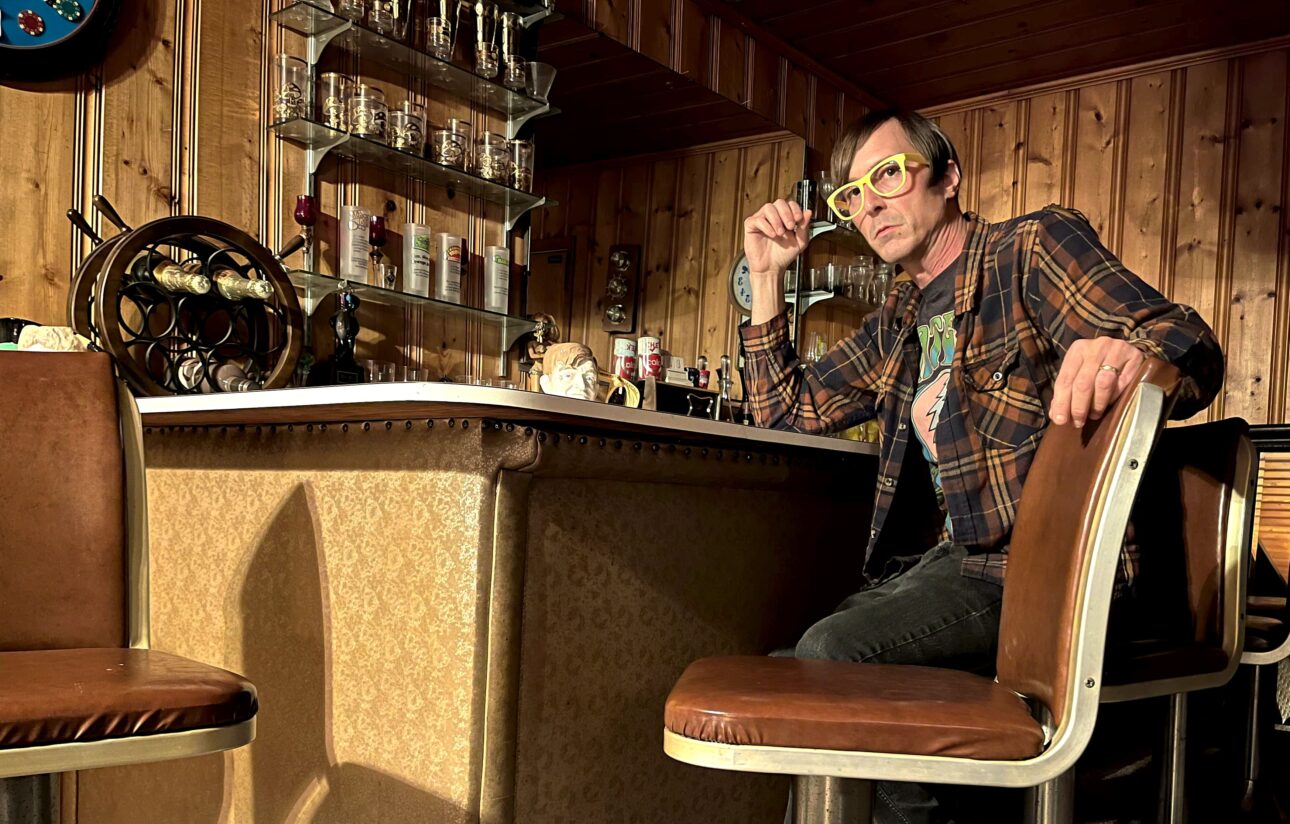
Tele & The Ghost of Our Lord
Sounds like: A fantastic flex on the cosmic country sound of our beloved and embattled LA canyons that reminds me of Beck and Neil Young.
Describe your approach to music and how you would explain your sound to others.
When I’m writing, I follow my instincts and focus on how the music makes me feel. The best songs usually come out of nowhere, and the best recordings feel like a memory as I’m making it. Sometimes the vibe is like wandering through the ruins of a burnt-down Frontier Land ride; other times, it’s more like hanging out in a tiki lounge in a parallel universe.
Right now, our sound rides the lines of psychedelic outlaw country, ‘40s ranch tunes, haunt-xotica, folk, garage gospel, and the early synth pioneers. I’m chasing a certain feeling, and when I find it, it hits me hard.
How did you come up with the name of your act?
The name Tele & The Ghost of Our Lord evolved slowly. About 20 years ago, I handed out a demo labeled “Tele,” and it just stuck — it seemed like a way to honor my trusty guitar as well as communicate and broadcast a more introspective side of myself.
When I recorded my first album, Beach Party Blast/Quasi-Immaculate Deception, I was living in a foreclosed, haunted house. Most of the record came together in just a few days, and it was like something ancient and otherworldly was guiding me to complete it. Upon finishing it, it’s as if I had awoken from an altered state with an important memento from the other side. I dubbed that presence “The Ghost of Our Lord.”
What are some artists and albums that have informed your creative direction?
I take in music the same way I make it — I lean into soundscapes that capture a moment and draw you into another world or further secure you in this one. I’m currently obsessed with exotica artists like Martin Denny, Eden Ahbez and Les Baxter, and classic country artists like Roger Miller, Jimmy Wakely and Waylon & Willie.
On the electronic side, I find myself returning to Mort Garson, Bruce Haack and Aphex Twin on a regular basis. David Bowie, Brian Wilson and Jerry Garcia are always in the mix for me as well. All of these artists speak to me in ways I can’t quite describe.
What’s the most exciting thing happening in music right now?
What fascinates me about music right now is how infinite it is. You could live multiple lifetimes and never hear the same song twice. It continues to evolve, expand, and breathe. I’m eternally grateful to be able to tap into it, be replenished by it, and contribute to the source. It’s like leaving messages for someone familiar that I’ll never meet. Plus, you can finally get a Moog without sacrificing your firstborn.
Where do you see the music world heading in the next five years?
In the next five years, I think music will keep doing what it’s always done—helping us cope, cry, heal, imagine, create, laugh, rebuild, cut loose… party. It brings people together and shows us our tribe. I believe it’ll keep connecting like-minded souls and help us create a better world of infinite positivity and possibilities, breaking down barriers in its wake.
How is music helping you during these uncertain times?
Music reminds me that the universe is masterfully crafted despite whatever chaos and division we’re being sold. Being able to follow an artistic impulse, even when I don’t know where it’ll lead, helps me trust the process and, in the small ways I can, tune into molding reality as I would like to see it. Music is evidence that there is beauty in all things and calls me to make the most of my voice while I’m still here in this strange realm.
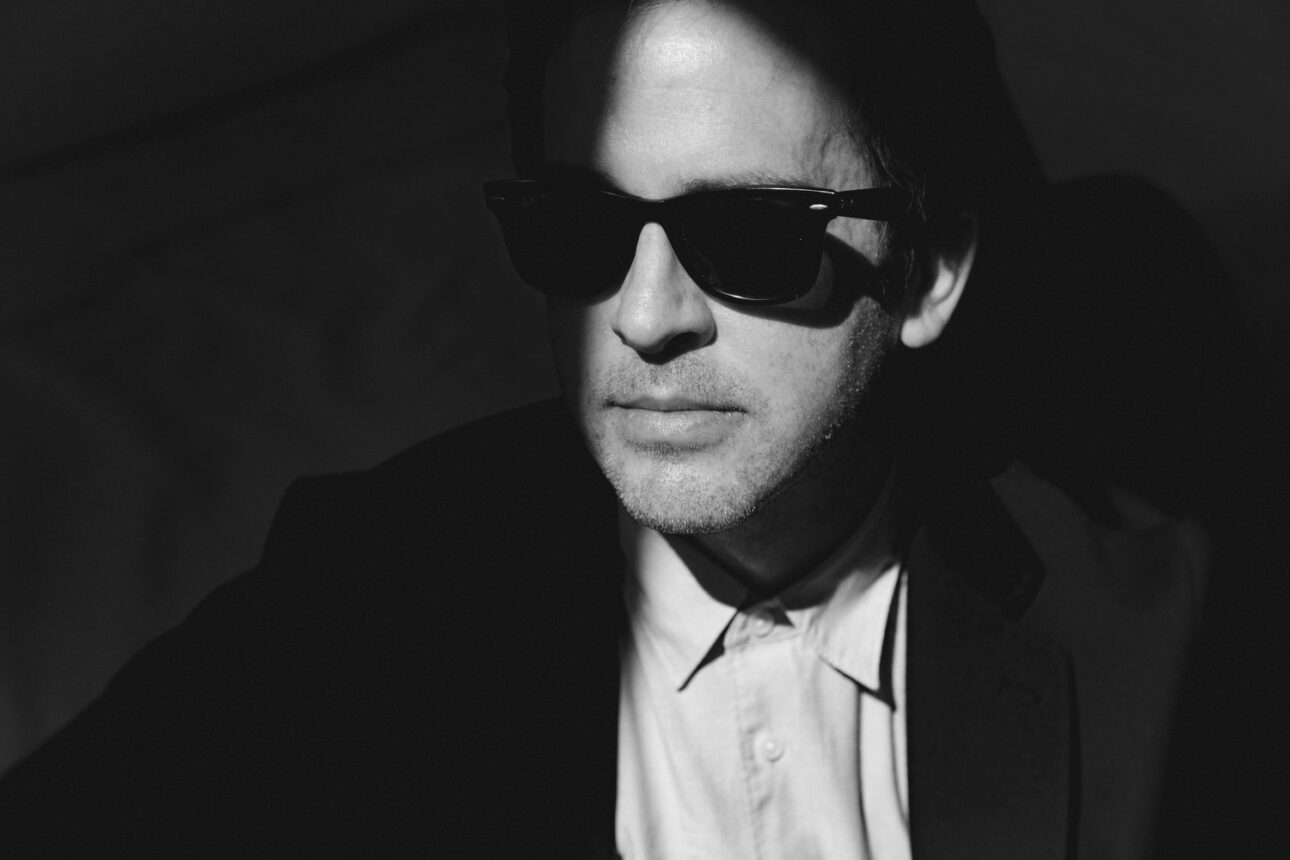
David Cloyd
Sounds like: Breezy, jazz-inflected adult alternative buoyed by the Buffalo, New York-based Cloyd’s distinctive timbre that will appeal to fans of John Martyn, Nick Drake and Jeff Buckley.
Describe your approach to music and how you would explain your sound to others.
I’ve been chasing musical ghosts from the beginning. Everything I hear—from Mozart to McCartney—inhabits me in a way I can’t help. I started off as a classical pianist, and though I walked away from that discipline many years ago, the mindset still informs and guides how I approach songwriting and the arrangements on my records. My music certainly has some signature elements—I love combining acoustic and electronic elements in new and unusual ways, and I’m drawn to strange and melancholy chord progressions like a moth to a flame. I’m coming from a perspective that’s not rooted in anything other than the feeling I’m trying to communicate. That gives me freedom, and in my experience, that approach helps me make music that sounds like only I could have made it.
How did you come up with the name of your album?
I read Moby Dick many years ago, and one specific passage haunts me to this day. At the end of the chapter called “Merry Christmas,” Ahab’s ship is headed out to sea, unknowingly never to return. As soon as they’re in the clear, two extra pilots climb into a waiting sailboat to head back to shore. Melville writes: “Ship and boat diverged; the cold, damp night breeze blew between; a screaming gull flew overhead; the two hulls wildly rolled; we gave three heavy-hearted cheers, and blindly plunged like fate into the lone Atlantic.” Still gives me goosebumps. I probably decided in that moment I would write an album about the sea.
The title of the album, Red Sky Warning is pulled from the lyrics of “Ocean Of Hours,” the opening track: “And though we saw a red sky warning / It’s safer if we leave this morning.” The old maritime saying, “Red sky at night, sailor’s delight; red sky morning, sailor’s warning,” reflects the fact that life is full of storms, and you should be aware of whether they’re coming or going. The adjacent and uncomfortable truth is that sometimes playing it safe might be impossible, and the best decision might also be the riskiest. Love can make you brave in the face of fear, and set your course toward adventures beyond your wildest imagination.
Blake Morgan, my producer and partner-in-crime, was the one that offered it up as a suggestion. After the album was done, we spent about a week looking at index cards of the song titles on our respective floors, sending each other photos of “Side A/Side B” track orders. My working title had been Into The Sea (after the song), but stepping back and looking at the whole thing, Red Sky Warning was the clear winner—it felt dangerous, powerful, ominous, and honest.
What are some artists and albums that have informed your creative direction?
There are some obvious bands and artists that have influenced me — The Beatles, Radiohead, Peter Gabriel, Beck, David Bowie, Sigur Ros, The Flaming Lips, Glen Hansard, Leonard Cohen, Nick Drake, Bob Dylan, Jeff Buckley, Elbow, XTC, U2, R.E.M., The Smiths… I mean, we’re all standing on the shoulders of giants, and I love the BFGs that are giving me a lift. As a solo artist and multi-instrumentalist, I’ve been inspired by other artists who have taken all creative manners into their own hands (or very close) when making records—Paul McCartney, World Party (Karl Wallinger), Elliot Smith, Stevie Wonder, Thom Yorke, Nine Inch Nails, Sufjan Stevens, Bon Iver, and Blake Morgan to name a few. So much of my musical life has been based on the singular premise that if they can do it, I can do it. I’ve been crazy enough to try, and now it’s in my DNA.
I want to give a singular shout-out to the female artists that are baked into everything that I do as well — Joni Mitchell, Björk, Kate Bush, PJ Harvey, Fiona Apple, Sinead O’Connor, Elizabeth Fraser (Cocteau Twins), My Brightest Diamond (my friend Shara Worden), and Janita (my friend and label mate) are among the brightest stars in my sky. They push the creative envelope harder and farther than most men do, and their bravery inspires me to be more vulnerable in my art. Funny, if I said I “sounded like” any of those amazing women, you probably wouldn’t think about harmonic sensibility, instrumentation or lyrics—you would just think, “His voice doesn’t sound like hers at all.” Strange how we have to shine a light on misogyny everywhere. At any rate, I dream that my voice (singing or artistic) can hold a candle to any of theirs.
For this album, I really did try to detach from all inspiration as I wrote and recorded, as if I was out to sea with no land in sight. You can’t possibly avoid all connection to other music, but I was certain that I had to search for the sound that these songs wanted, rather than conjure it up. During the time I recorded this music, some albums got played a lot more than others, including Glen Hansard’s Rhythm & Repose and Didn’t He Ramble, Radiohead’s A Moon Shaped Pool, Nick Drake’s Pink Moon, Björk’s Vespertine and Beck’s Morning Phase, to name a few. I don’t know if those sounds found their way into this album, but their spirit certainly did.
Where do you see the music world heading in the next five years?
I think that the music industry is headed into the same dark cloud of AI, political upheaval, and climate change that the rest of society is facing. It’s easy to become despondent under the weight of it all. Artists have always been confronted with this awful question: what’s the fucking point of making art? Society is full of “if/then” scenarios for you — “if” you hit it big, make a hit record, sell out a tour, “then” your success is the validating point. For artists, the answer has always been and always will be BECAUSE, THAT’S WHY. It’s the simplest answer, it can’t be debated, and it cuts straight through cynicism like a hot knife.
There are plenty of wonderful and capable people making passionate and salient arguments against the evil forces in the creative world, and that’s crucial to the cause. But every artist that cares whether music lives or dies is going to have to roll up their sleeves and put their energy into making art that does the real arguing for us. No one other than artists can fight that way. I hope I won’t go down like John Henry, winning the battle but losing the war. And if we’re all on our way out anyway, I personally choose to go out swinging.
What’s the most exciting thing happening in music right now?
In spite of all the negative trends happening within today’s music industry, I hope there’s also still going to be an opportunity to create a creative middle class for musicians. I’ve seen more artists stop trying to “make it big” and start building their own paths forward. I’m not a big fan of all of those paths, particularly ones that rely on “content creation,” a term that I don’t care for as an artist. (Regardless of what it is, referring to anything that artists make as “content” has the unavoidable side effect of further diminishing the value of art.)
I partnered with my friend and fellow artist Eric Crittenden to start Buffalo Music Club, an artist management company for local musicians in Western New York. We help each artist monetize their art in any way we can collectively think of, including music lessons and camps, private events, concert production, and pro music services. We challenge mainstream artists to reinvent the traditional tropes so that they work for them and their students, and we challenge the more traditional artists to embrace mainstream opportunities.
That gives them both an opportunity to continually reinvent themselves with more control over what and when they do things, and how they do them. So many cool things have sprung from this idea — we host a music camp for young aspiring artists that culminates in a performance at the Borderland Music Festival, and I host a regular concert series called MIXTAPES that has me sharing the stage with other local and national songwriters and a string quartet.
Artistic life has always needed to be fluid and adaptable, and these artificial boundaries around the different music worlds do not serve artists at all. That’s what makes Buffalo Music Club different — we choose to support artists instead of art, because that’s where art comes from.
How is music helping you during these uncertain times?
Is there such a thing as “certain” times? In my experience, every single day is uncertain, and music helps me through all of them. Being creative helps me embrace that reality, even when it terrifies me. Music amplifies my feelings, connects my thoughts to something outside of myself, helps me get bigger and smaller at the same time — like Alice’s bottle and cake all rolled into one. It’s still so profound to me when you finish a song and it all seems inevitable, but you know there are alternate dimensions in which it’s a completely different song, or it’s not a song at all.
One of my favorite aspects of songwriting is that I still discover new things about my songs all the time, even though I’m the one that wrote them. This Father’s Day, my son (our second-born child) asked me what “Ocean Of Hours” was about, and I was giving him my spiel about sailors and storms when all of a sudden it dawned on me that the “red sky warning” at that time was us deciding to have a second child, returning to that churn of uncertainty created by an infant. I have zero regrets about our choice. It’s worth every sleepless night, and I can’t imagine life without either of our kids—I’m absolutely certain of that.
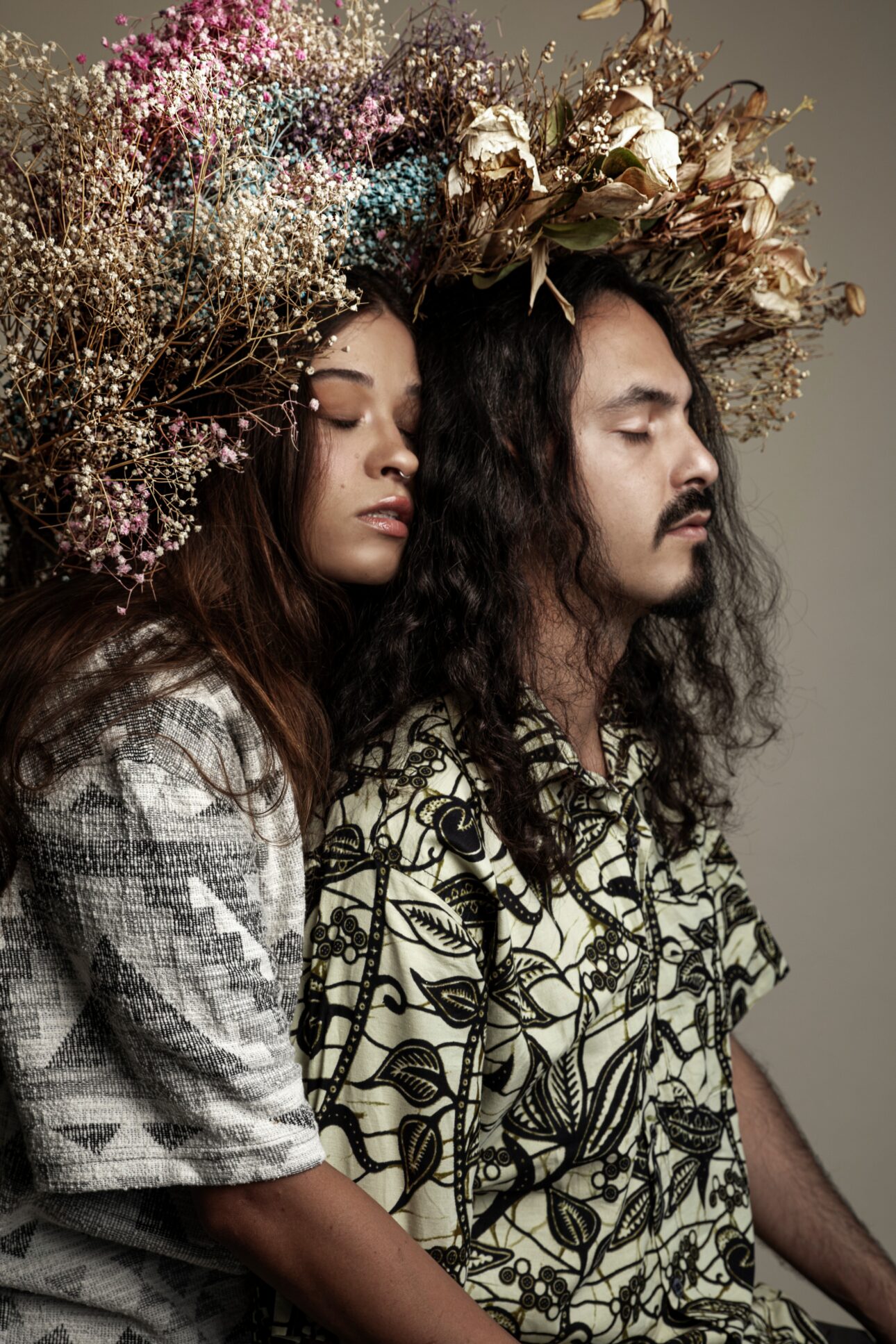
IDDO feat. Sivan Dahan
Sounds like: Widescreen IDM-infused pop with a soulful edge from the mountainous region of Northern Israel.
Describe your approach to music and how you would explain your sound to others.
Sivan: It always starts with a feeling. I tap into that emotion, then shape it into melody and words until it rings true. My vocal style is warm, deeply melodic, and rooted in authenticity. I love experimenting with different rhythmic flows — pushing and pulling the phrasing until it tells the story in the most honest way.
IDDO: I’m drawn to musical “alchemy”: a few simple elements that, when combined, create a third meaning you can’t hear in the parts alone. I chase surprises — sharp left-turns, unexpected textures — anything that makes the ear perk up.
How did you come up with the name of your act?
IDDO: We didn’t — our mothers did. We both perform under our given names, so credit goes to them!
What are some artists and albums that have informed your creative direction?
Sivan: Locally, Ninet Tayeb’s vocal power and rock-soul energy inspire the diva edge you hear in my choruses. Dennis Lloyd’s hook-heavy electro-pop also feeds into the vibe.
IDDO: Early Apparat and the whole Modeselektor family were huge for me. Add the classics — Eskmo, Aphex Twin, Amon Tobin, Björk, AIR — and you get the DNA behind my production choices.
What’s the most exciting thing happening in music right now?
Sivan: Singer-songwriters who keep things raw and original. In Israel, artists like Echo, Nunu and Shir Azaloff are making waves. Globally, I’m obsessed with Doechii — she’s fearless.
IDDO: Ben Encanti’s upcoming solo material is the most interesting thing I’ve heard in a while.
Where do you see the music world heading in the next five years?
Sivan: As technology and access keep expanding, hidden talents will surface faster, great songs will travel even farther, and our own music will reach new ears all over the world.
IDDO: It depends which wolf we feed. AI could be the harbinger of doom – or the key to thousands of new sounds and micro-genres. I’m betting on the latter; that’s paradise for music geeks like us.
How is music helping you during these uncertain times?
Sivan: Growing up in Israel’s constant uncertainty, music became my safe place. Whether I’m writing, listening, or sharing a song onstage, each note feels like a tiny dose of healing. Performing for people — seeing them light up and feeling that shared energy — reminds me why I do this.
IDDO: Writing and producing is my therapy. When I pour heavy emotions into sound, they turn into something tangible — something I can examine, learn from, and ultimately release.
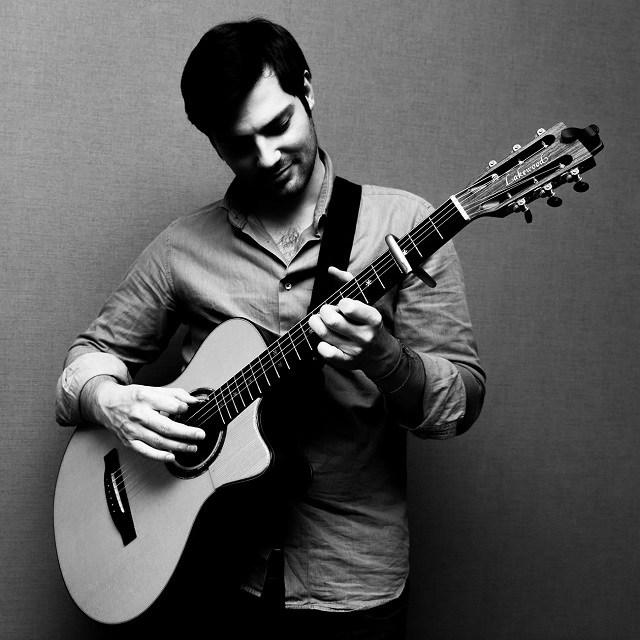
Emilio Lanza
Sounds like: If the late, great fingerstyle guitar master Michael Hedges wrote pop songs like James Bay and resided in Naples, Italy.
Describe your approach to music and how you would explain your sound to others.
My main skill is acoustic fingerstyle guitar — that’s usually where the magic starts. But it depends: sometimes I come up with a vocal melody first, and then build the chords and lyrics around it.
I’d describe my sound as “Fingerstyle acoustic guitar meets pop songwriting.”
How did you come up with the name of your act?
In my case, it’s simple: I use my first and last name. But my social media handle is “MiloLovesMusic” because my cousins call me “Milo” (with the Italian pronunciation) — it’s kind of a nickname :).
What are some artists and albums that have informed your creative direction?
My sound is influenced by a mix of pop, R&B and acoustic music. One of my biggest influences is definitely Ed Sheeran — back in 2021, he shared my acoustic guitar cover of “Bad Habits”, which still feels like a dream come true.
I also love blending pop and R&B with the fingerstyle guitar techniques of artists like Mike Dawes and Adam Rafferty (who’s actually my online fingerstyle guitar teacher from the U.S.).
Side note: my latest single “Celebrating” has a different vibe — you might catch some Pentatonix-inspired elements in the production.
What’s the most exciting thing happening in music right now?
I still believe in the power of live concerts! A lot of amazing acts have been filling local stadiums lately — it’s great to see that energy coming back.
Where do you see the music world heading in the next five years?
I’m a bit worried — we already see over 120,000 songs being released every day, and with AI, that number could grow even more. This could make it even harder for indie artists like me who create organic, human-driven music.
How is music helping you during these uncertain times?
As I’ve shared on social media, music is my oxygen — it always helps me get through tough times.
I also love curating playlists on weekends, just for fun. It’s something I do out of pure passion — I really enjoy discovering great music and hidden gems.
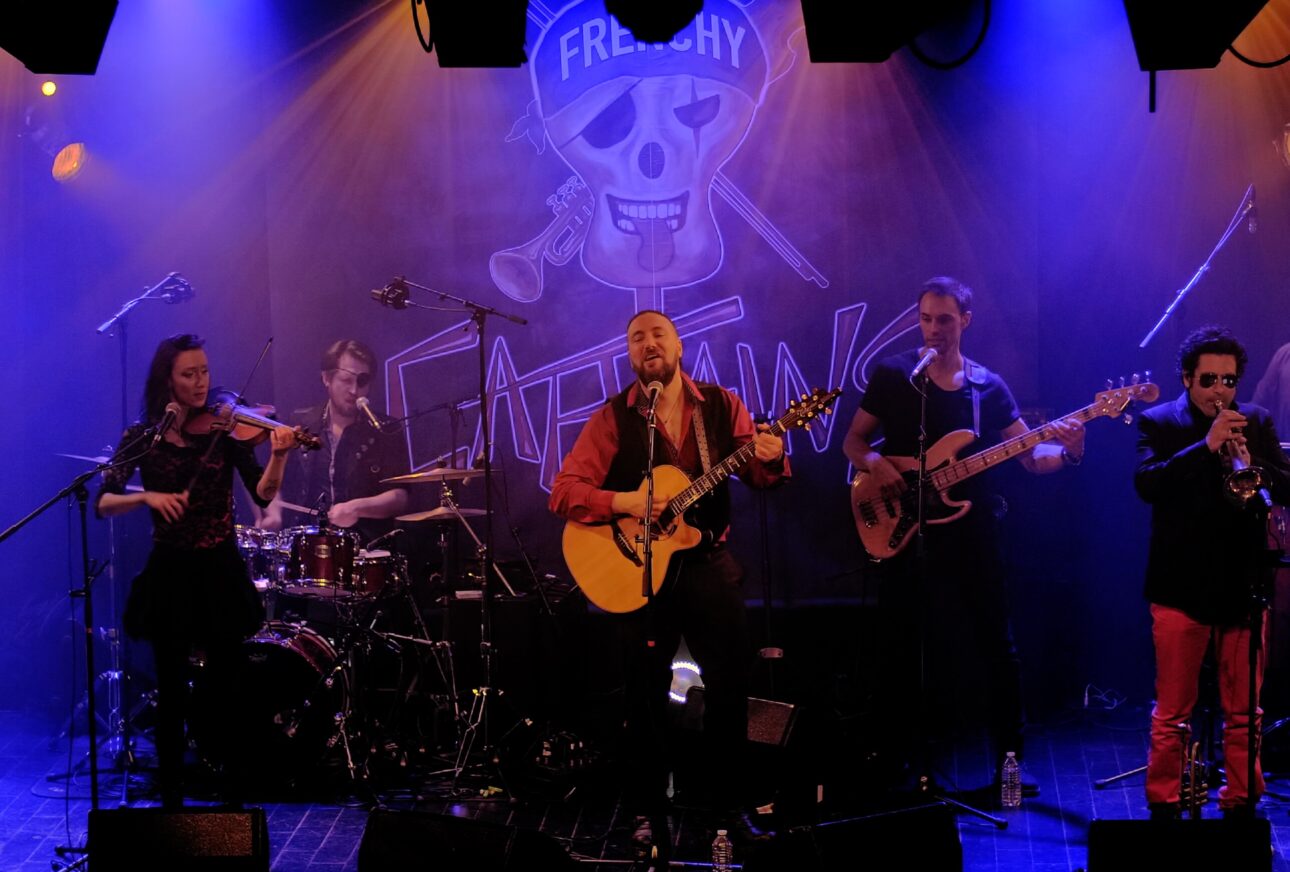
The Frenchy Captains
Sounds like: Musically rich big band pop rock that oscillates between early solo Sting and The Tragically Hip.
Describe your approach to music and how you would explain your sound to others.
My approach to music is quite organic, rooted in acoustic sounds. I’ve always had my acoustic guitar with me, and most of my songs are built around that foundation. With The Frenchy Captains, we blend that acoustic authenticity with a kind of rock energy, and we love exploring a fusion of styles. The violin and trumpet, along with the other instruments, allow us to bring in influences from Celtic, Latin, and tropical rhythms, giving our music a world music flavor. Another key part of our identity is the blend of original compositions and reinvented covers. We try to take well-known songs, like ‘Seven Nation Army,’ and give them a unique twist, making them our own, while also making sure that our original songs feel timeless and familiar. Ultimately, it’s all about creating something that resonates on a deeper, emotional level and showcases the richness of diverse musical influences.
How did you come up with the name of your act?
In 2009, I moved to Paris and started performing my original songs in French. Over time, through different travels and experiences, I felt the need to express myself more and more in English. At one point, I took my van and went on a road trip to Ireland for over a month, where I recorded a solo live LP featuring the best of my busking sessions. Later on, I met my violinist and we started performing together. One of our very first concerts as a duo took place at the Captain’s Bar during the Edinburgh Fringe Festival. We initially started calling ourselves The Captains, but since the name was already widely used, I came up with the idea of adding Frenchy, as a playful way to reflect our French roots. And that’s how The Frenchy Captains was born!
What are some artists and albums that have informed your creative direction?
Since I was a child, I was immersed in the great classics of French chanson, like Jacques Brel and Georges Brassens, but also influenced by artists like Johnny Clegg, whose world music left a strong mark on me early on. As I grew up, I went through phases of listening to French pop and later discovered anglophone artists like Ben Harper, especially his album “Live from Mars”, which deeply resonated with me for its blend of styles and acoustic sensitivity.
I also explored a wide range of genres, from funk and hard rock to jazz and reggae. In many ways, The Frenchy Captains project brings together all of these influences. I would also mention Keziah Jones, with his unique “blufunk” style that inspired me to stay open to genre fusion, and Jeff Buckley, whose lyrical rock and raw emotional delivery have always moved me deeply.
What’s the most exciting thing happening in music right now?
What I find exciting today is the ability to share music across the world from anywhere. Thanks to digital platforms and tools like Groover, I’ve received great feedbacks from South American radios, been added to playlists in Brazil, and featured in media from Colombia, India, South Africa, the US, Canada, and across Europe. That sense of global reach is truly inspiring, especially when you’re an independent artist based in France.
But alongside that excitement comes a lot of pressure. Today, making music isn’t enough and you also need a full-on marketing strategy just to be heard. Social networks are becoming less and less organic, and visibility now often depends on paid promotion. That can be exhausting, especially when you’re already doing everything yourself, from mixing tracks to editing videos, just to keep your project alive.
There are also hidden traps. I’ve personally been placed in fake “organic” playlists filled with bots, which triggered issues with Spotify and put my whole project at risk. The platform holds enormous power over music distribution, and when you’re indie, it only takes one misstep to vanish from the algorithm. That can be incredibly stressful and discouraging, no matter how much work you’ve put in.
So yes, it’s an exciting time in terms of global reach and creative potential but it’s also a challenging one, full of invisible barriers that independent artists constantly have to navigate.
Where do you see the music world heading in the next five years?
It’s a very interesting question and it’s hard to say, because things are changing so fast. One of the biggest questions right now is the role of artificial intelligence in music. We’re already seeing AI-generated bands appearing on platforms like Spotify, acts with no real story, no lived experience, just recycled fragments of what already exists. Often, this kind of music is designed less to be truly listened to and more to fill space, like background music for playlists, stores, or waiting rooms. These tracks can generate millions of streams in just a few weeks, without having to pay royalties to any songwriter, while more intentional and handcrafted music struggles to get noticed and to earn even a few cents from streaming. As someone who’s been building a project like ours for over ten years, putting real life and emotion into every note, I find that deeply troubling.
That said, I’m not against AI in itself. It can be a great tool for staying organized, thinking differently, or managing the many hats we wear as independent artists. But when AI starts replacing the creative core, serving us pre-digested, algorithm-friendly tracks that all sound the same, I think we lose something essential: the human spark, the emotion, the sweat, the story behind the music.
In that sense, I believe that having an authentic, handcrafted artistic approach is already a form of quiet resistance, maybe even something subversive. There’s something powerful in offering music that’s alive, imperfect, and grounded in real life. That’s what we try to do with The Frenchy Captains. We recently released a live album called Out of Nowhere, where everything was captured in one take with real musicians and raw energy. One of the songs, Searching for Evidence, lasts over five and a half minutes. That alone feels like a statement today, a way of saying it’s okay to take your time, to go deeper, to let things breathe.
I truly believe there will still be space for that kind of music. Just like people are turning to organic wines for something more real and alive, I hope audiences will keep seeking music that feels human and intentional. At least, that’s the path we’ve chosen, and I believe it’s still worth walking.
I think it’s a courageous path to follow, and we can be proud to carry it forward..
How is music helping you during these uncertain times?
I could almost answer this question with another, have there ever been truly certain times? Every generation faces its own turbulence. What matters is that music is always there when things feel uncertain, both on a personal level and in the wider world.
For me, music is absolutely essential. I grew up with it, and I became who I am as a person through it. It has taught me so much about human connection, about how musicians interact, about emotions. I’ve used it to express everything, from my first loves to heartbreaks. Music has been a kind of therapy for me, not just personally, but also as something I believe can help others. I still have faith in its power.
Throughout history, we’ve gone through crises. But right now, we’re living in a particularly fragile moment globally, politically, socially, environmentally. There’s this constant tension in the air, like we’re always one step away from something huge and terrifying, sometimes even wondering if a third world war might be looming. And yet, through all that, music remains. It helps us process, reflect, and sometimes just breathe.
To me, music lifts us. It connects us. And maybe it sounds naïve, but I truly believe it can help us save ourselves. When I think about that, I think of Imagine by John Lennon, a song that still feels incredibly relevant. That spirit of hope and unity still matters.
With our own music, I try to stay in that same spirit. In our song Full of Life, from the album Out of Nowhere, we talk about the small things we can do each day, staying present, spreading joy, doing our best to bring something good into the world. It’s about taking action on a human scale, and finding happiness not as a grand destination, but as something you build through how you live. I believe that kind of message matters now more than ever, realistic but hopeful.
With The Frenchy Captains, we try to carry that intention, to send a message that we’re all here together, and that we need to find ways to live alongside one another, despite our differences in culture, religion, or politics. It’s not easy, but I do think music can help.
And maybe, for someone like me who isn’t religious, I could say that music is, in a way, my religion. It gives meaning, direction, and connection. And in uncertain times, that’s more vital than ever.
Groover connects independent artists with music industry professionals to accelerate their careers. Their goal is to empower independent artists by providing a platform that connects them with the best curators, radio, media, labels and other music pros to receive guaranteed feedback and exposure.
Over 500,000 artists use Groover to connect with 3,000+ professionals across the globe. Artists have received over 6M+ pieces of feedback, 1M+ shares (e.g. playlists, reviews) and 1,500+ label contracts — all thanks to Groover!
→ Continue reading at Spin
